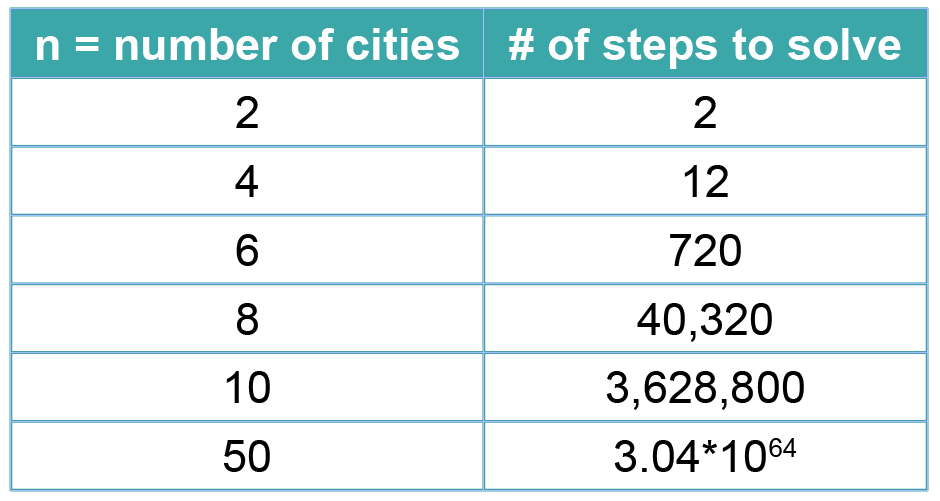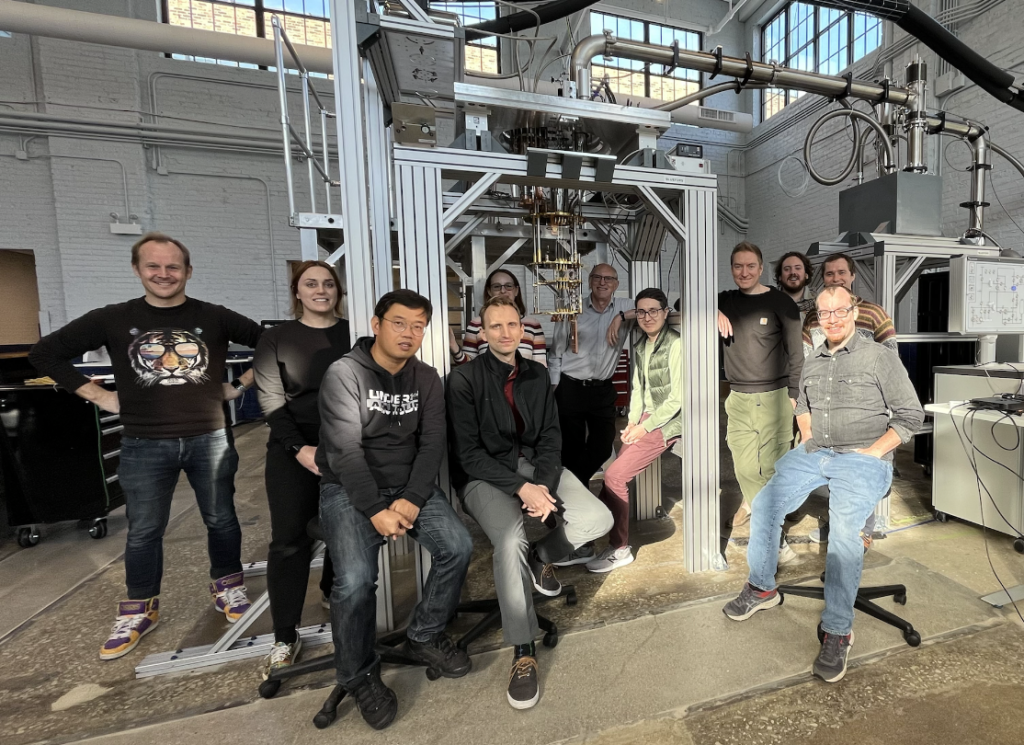
A spotlight on the exciting topic of quantum computing as it relates to the latest addition to our VCapital portfolio: EeroQ Quantum Hardware.
Thank you to Tim Pusateri, MBA Candidate at Northwestern’s Kellogg School of Management and VCapital intern, for writing this article. We are tremendously excited to see the future of quantum computing unfold and provide our investors an opportunity to build wealth through breakthrough innovations.
Cartoon credit: Saturday Morning Breakfast Cereal "The Talk" by Scott Aaronson and Zach Weinersmith
Quantum Today and Quantum Tomorrow
The last five decades have stewarded unprecedented advances in technology that have fundamentally altered the daily lives of most people. Even in the last three years, business organizations have evolved into a “digital first” strategy with the acceptance of remote work. College graduates joining the workforce today may never experience the routine of commuting to an office, conducting face-to-face meetings, and engaging in the proverbial water cooler banter.
Moore’s Law
This shift has been facilitated by the brilliance of researchers in software and hardware engineering. A measurable result is a computer science theorem called Moore’s Law. Simply put, Moore’s Law states that the number of transistors that can fit on a computer chip doubles every two years. By extension, this has meant that the computing power of processors has doubled every two years, and computers have been able to handle more complex tasks. We have Moore’s Law to thank for reliable video conferencing, hyper-targeted digital advertising, and streaming services that guess your movie preferences eerily well. However, in recent years, computer scientists have begun to see Moore’s Law break down. Computing power is no longer growing at the rapid rate we saw at the turn of the century. While this may be true for classical computers, there is a new generation of computing technology on the horizon that may restore or even exceed Moore’s Law: Quantum Computing.
Classical vs. Quantum
The physics and mathematics that underpins quantum computing are incredibly complex. Still, just like the computers we use today, it will be unnecessary for most people to understand how they function underneath the hood. A simple understanding often goes like this: classical computers solve problems by interpreting signals from the charges stored in transistors, which can either be 0 (off) or 1 (on). Quantum Computing utilizes the quantum state of an electron, which can be off, on, or both, and the state is interpreted along a probabilistic spectrum. The result is an exponential jump in the processing power of a qubit – the quantum analog to the classical computing bit.
While most knowledge workers today do not need the processing power that a quantum computer can provide, there are still many important problems that require more computing power than classical computers can provide. It may be surprising to some that many problems in computer science still have PhDs scratching their heads because the only known solutions would take thousands of years to compute, even with the world’s most powerful supercomputers. These problems are sometimes considered incomputable because the only known algorithms to solve them are too inefficient for the processing power available today. The “Traveling Salesperson Problem” is a classic example to ponder.
Given a list of cities and the distances between each pair of cities, what is the shortest possible route a salesperson could take that visits each city exactly once and returns to the origin city?
On a small scale, say three or four cities, this problem is easy to solve. However, as the list of cities grows, perhaps to 50 cities, the number of possible routes balloons at a frantic pace, and we are left with an incomputable problem. In computer science parlance, this problem has a complexity of O(n!), where n is the number of inputs. We can see in the table below how this quickly gets out of hand:

Deeper research reveals that solving this problem has implications far beyond theoretical mathematics. In addition to being tremendously valuable to supply chain optimizations, a solution to the “Traveling Salesperson Problem” would unlock significant advances in chemical interaction modeling and cryptography. While classical computers offer little hope in addressing this need, quantum computing may be able to crack the code.
Faster, Smarter, Better
By leveraging properties of quantum mechanics to perform calculations in a fundamentally different way from today’s classical computers—specifically superposition and entanglement—the computational power of a quantum computer doubles with each additional unit of information, compared with a classical computer whose power doubles as the number of bits doubles. By processing information exponentially faster than a classical computer, solving previously intractable problems becomes possible and will drive technological breakthroughs in drug discovery, finance, logistics, material science, energy, and cryptology.
The implications of unlocking this technological revolution are both amazing and serious. In addition to vastly improving our understanding of how a new drug would interact with the body, quantum computing may well open the door to general artificial intelligence (GAI), giving way to computers with intelligence equal to or even exceeding human intelligence. A more practical and immediate problem will be that quantum computers will unlock the capability to break many encryption standards widely deployed to safeguard our banks, hospitals, and critical infrastructure.
Today, quantum computers are largely confined to labs and research parks but are becoming democratized through cloud computing services provided by companies like Amazon and Google. It seems unlikely that individual consumers would ever possess quantum computers on the scale seen by classical computers, but consumers will definitely benefit from the software breakthroughs they enable. The race to commercialize quantum computing is well underway, with many companies, universities, and government organizations contributing different components to build stable and scalable quantum computing. VCapital’s portfolio company, EeroQ is focused on quantum hardware and is building an innovative quantum chip that is more stable than its competitors.

Major technology companies like Intel, IBM, Google, and Amazon continue to invest in quantum computing, and they will certainly play a role in its adoption. However, industry experts speculate the state of quantum computing today will mirror the state of computers and the internet in the 1950s. There will be many winners and losers in this space, and...there will be exciting new business models that we cannot yet conceive of.
Other articles you might like
About Fred Tucker
Leader, Inventor, Investor, Mentor, Friend
Aging is the Mother of All Diseases.
The co-founders of Rejuvenate Bio are developing gene therapies to treat age-related diseases in human and animal health.
Venture Capital Investing Cycles
There are signs of the beginning of a new upswing in the VC investing cycle.




